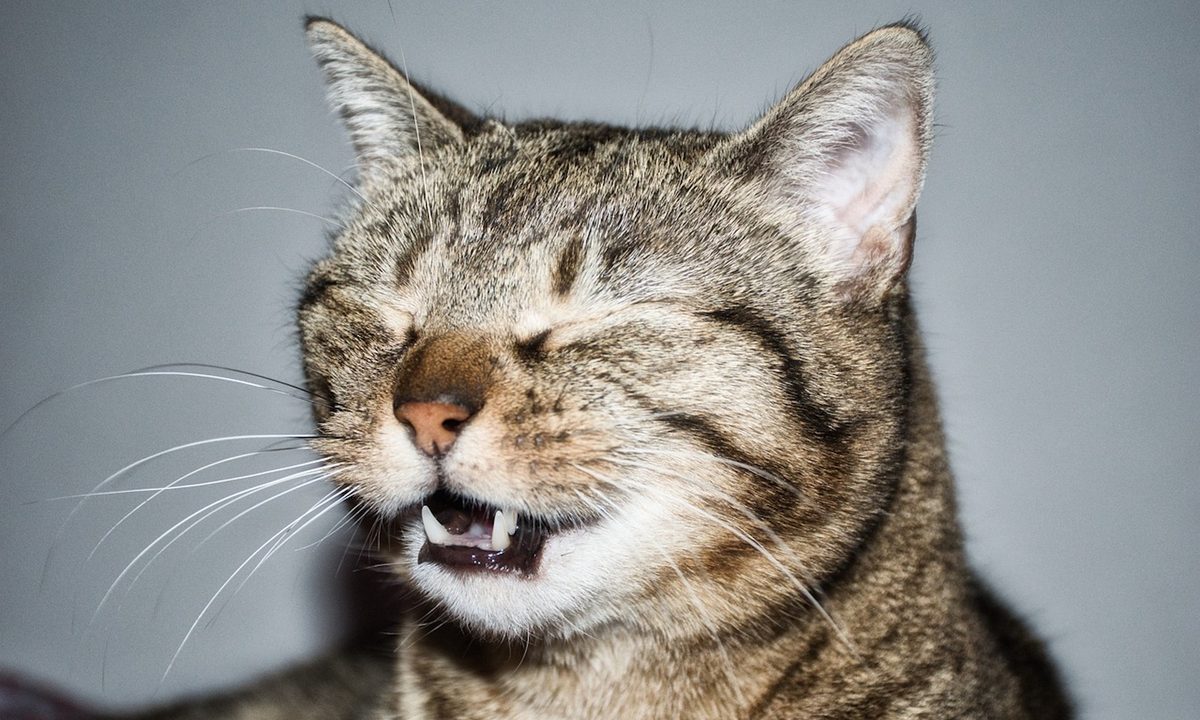Cats and other furry animals often make humans sneeze, but we rarely consider what happens when it’s the other way around. It can be cute and even entertaining to see our pets let out a tiny sneeze, but it’s normal to have questions about it, too. What causes healthy cats to sneeze? Is sneezing as normal for felines as it is for humans?
Sneezing may be the body’s natural reaction to irritants entering the nasal passage. Even for kitties, this is completely normal (and super cute, too). But if your cat sneezes frequently or has other symptoms, it could indicate a more serious issue. That means it’s time to take your cat to the vet‘s office. Your vet will be able to check out your cat and provide treatment if needed. But how do you know if a sneeze is more than a sneeze? Keep reading to get help answering the question, “Why is my cat sneezing a lot.” Also, learn when to see a professional and what the treatment may be.
Causes of cat sneezing
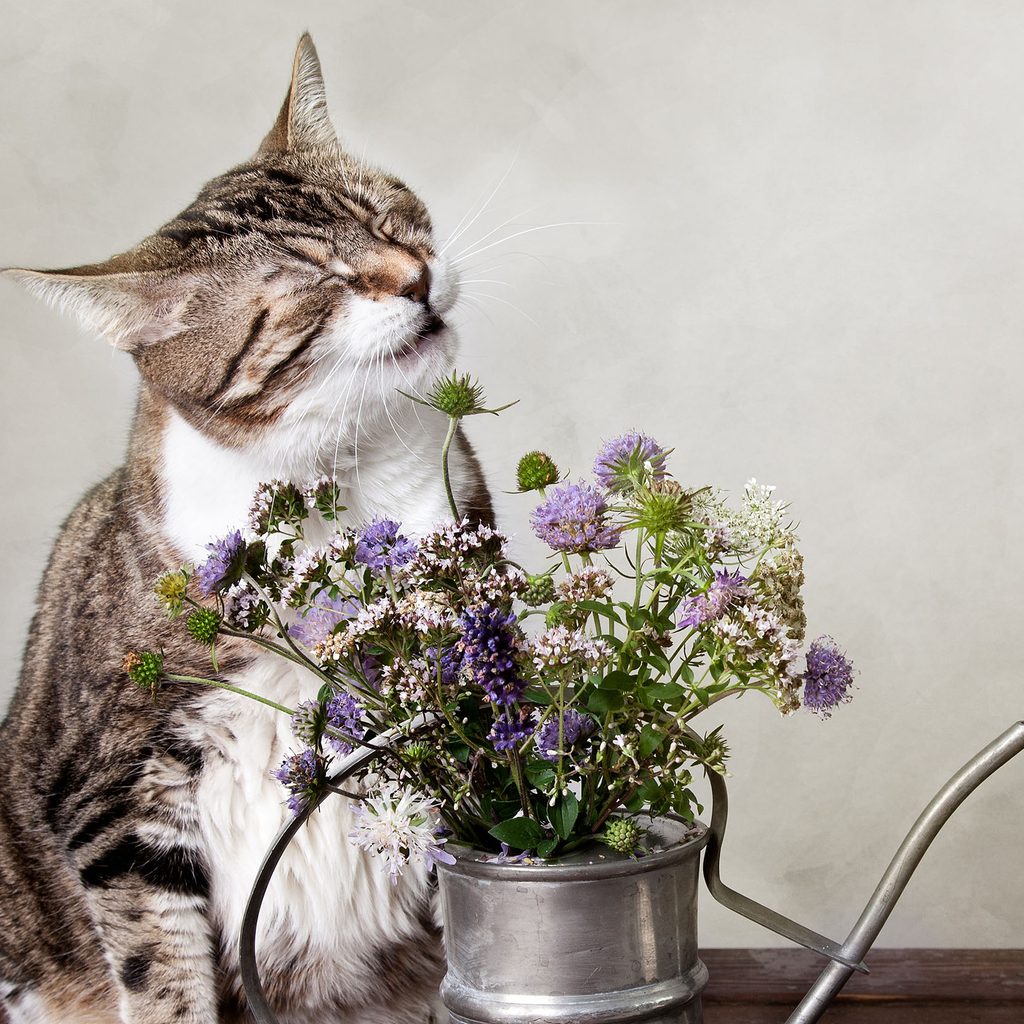
Determining why your cat is sneezing is not always straightforward. Several different things can make a cat sneeze. Here are a few of the most common causes.
Allergens or inhaled irritants
If your kitty sneezes only occasionally, something may be bothering her nasal passages. Irritants and allergens include dusty cat litter, cigarette smoke, scented sprays, candles, pollen, mold, and dust. Look for patterns when your cat sneezes. Does she do it only in a certain area of the house or after you’ve cleaned the litter box? This can help you narrow down a cause. However, allergies are a less common cause of sneezing than they are for humans. If the sneezing is allergy-related, your cat may also have itchy skin.
Infections
If you find yourself asking, “Why does my cat keep sneezing?” a viral, bacterial, or fungal infection may be your answer. Often, continual sneezing is caused by an upper respiratory infection. Cats can even catch the cold or flu! Other infections that can cause sneezing include feline herpes virus, feline calicivirus, FIV, feline infectious peritonitis, Bordetella, and chlamydia. In this case, you should visit the vet to get a diagnosis. Infections are more common in younger cats and those who are coming from animal shelters, but you can prevent infections by getting your cat vaccinated as early as possible.
Other causes
Tons of other factors can contribute to cats’ sneezing. Cats can sneeze for four to seven days after getting an intranasal vaccine, for example. Kitties also sneeze to remove a nasal blockage. Tooth inflammation and infections can also cause sneezing. In rare cases, however, sneezing can be a symptom of certain cancers.
Can cats be allergic to humans?
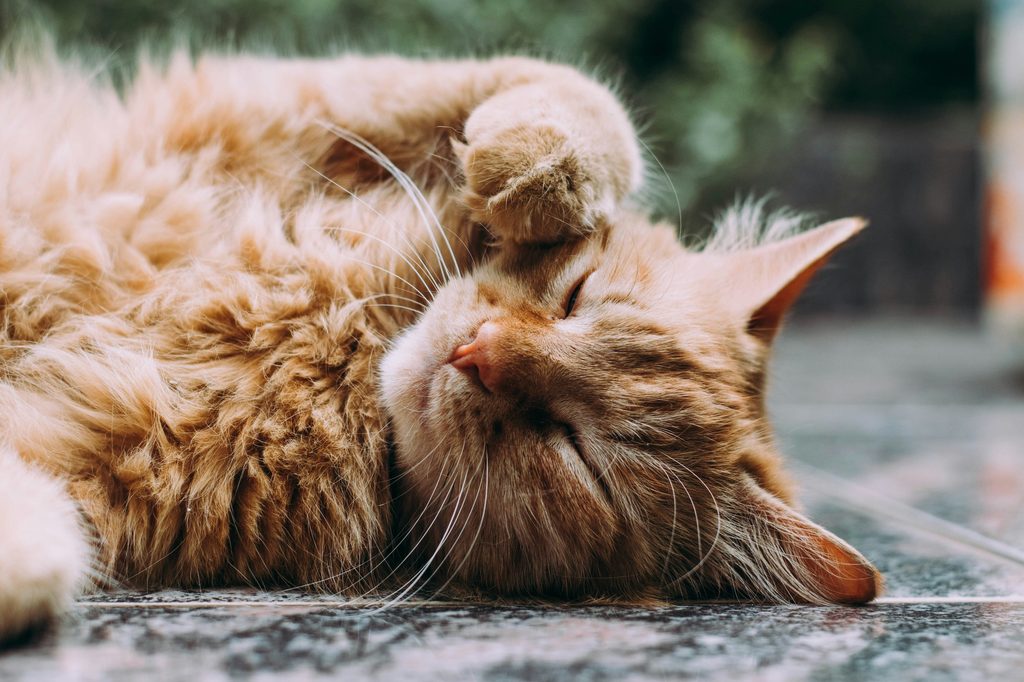
Cat allergies are all too common in people, though they rarely stop true feline fans from spending time with their furry friends. But did you know that cats can be allergic to people, too? That’s right, it’s technically possible for pets to be allergic to human dander! After all, dander is a mixture of hair and dead skin cells, which people have, though humans tend to leave less dander around due to how frequently we bathe.
It’s rare to find a cat who’s truly allergic to human dander, but it can happen. This will result in a number of allergic symptoms, such as:
- Runny eyes
- Itchy eyes
- Increased grooming
- Itchiness across the body
- Hair loss
- Swelling, particularly in the face or head
- Ear infections
However, it may be hard to tell what’s truly the result of an allergy to human dander, as many cats who are allergic to people also have reactions to common household allergens like dust and mold. The good news is that treatments for these allergies are all the same!
Is sneezing a serious problem?
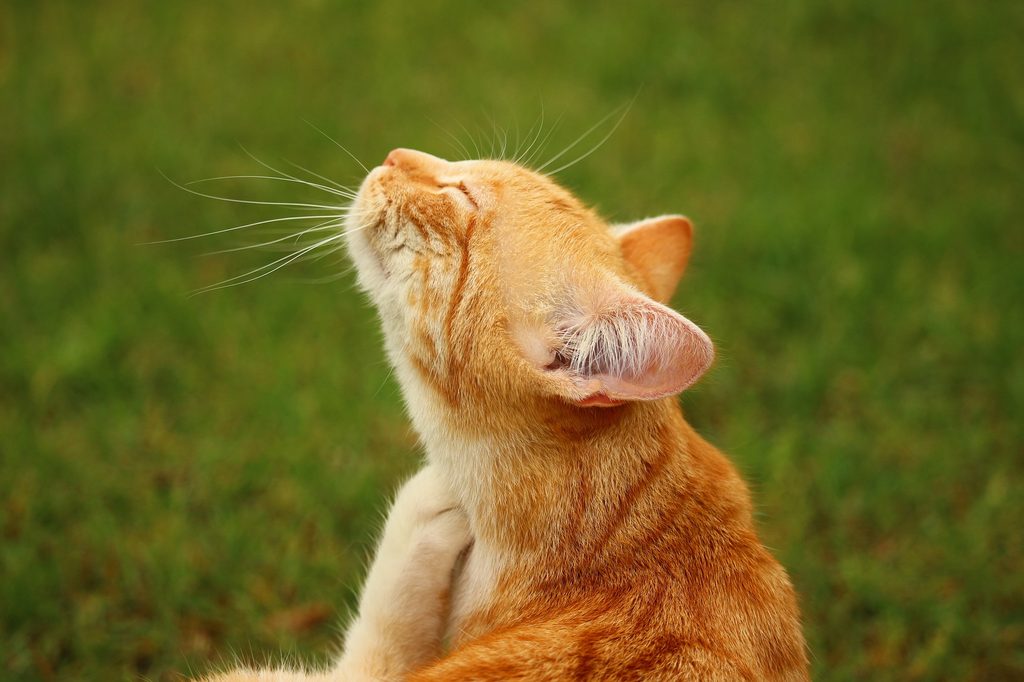
Sneezing can be a sign of a more severe issue, depending on the cause. If it is triggered by an environmental factor, like dust or other irritants, sneezing is not a serious problem. Usually, these sneezes are isolated incidents, not ongoing issues. But if your cat’s sneezing is caused by disease or infection, the issue could require more attention. For cats that sneeze continually, it’s important to schedule an appointment with your vet to get a proper checkup.
When should you see the vet?
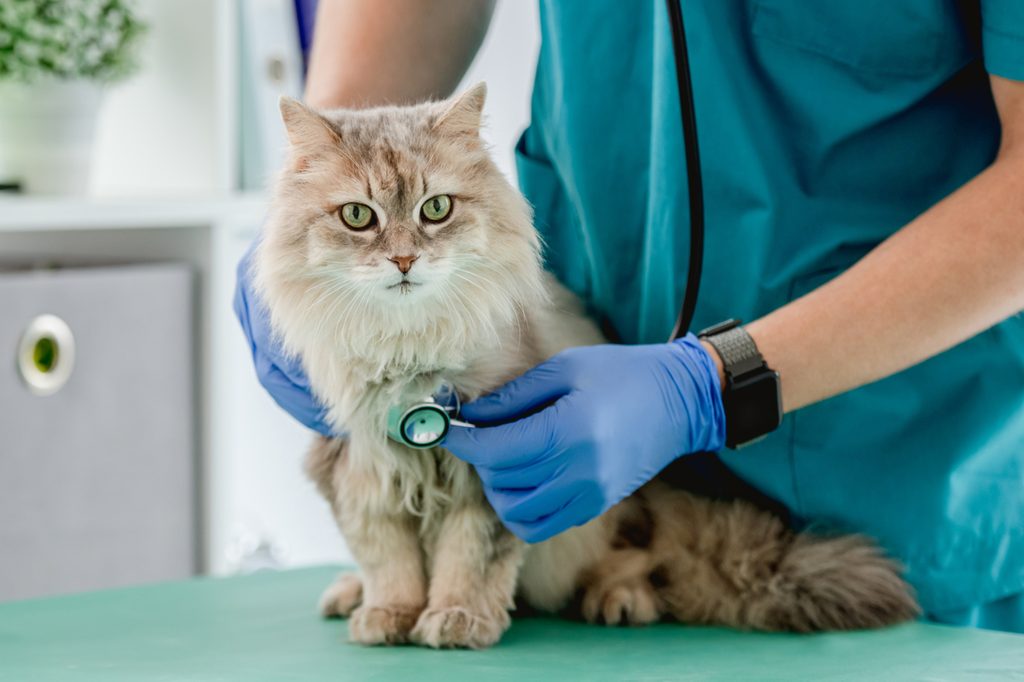
Cats that sneeze only sporadically or experience no other symptoms don’t need to visit the vet. If they have only mild symptoms, you can monitor their condition for a few days before deciding. Schedule an appointment with the vet if your cat sneezes often or nonstop, sneezes blood, or experiences other respiratory symptoms. This could be a sign of a serious condition or illness that requires medical care to remedy.
Underlying conditions that cause sneezing can be uncomfortable or painful for your cat. Other symptoms to look out for include nasal discharge, weight loss, loss of appetite, worsening symptoms, and symptoms lasting more than a few days. Your vet can determine the cause of your cat’s sneezing and provide a treatment plan to relieve her pain.
What is the treatment for cat sneezing?
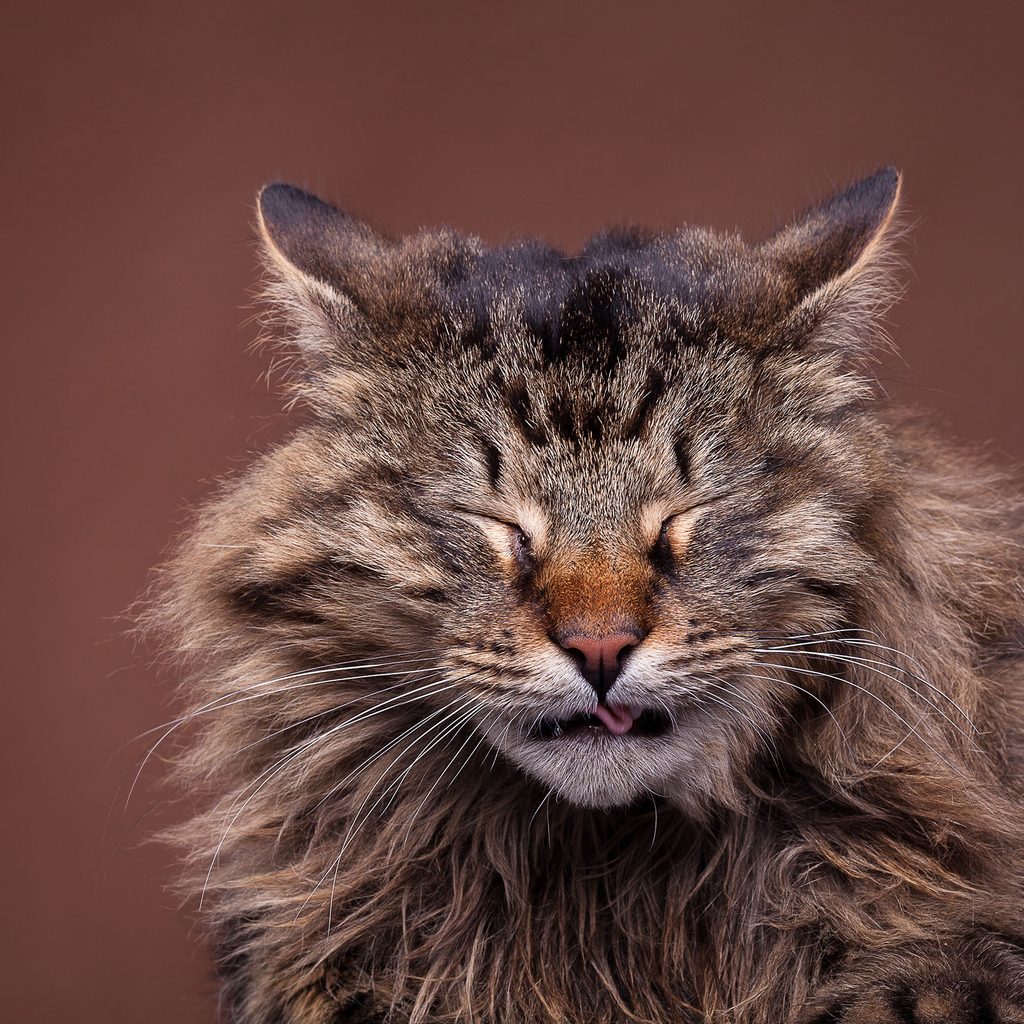
When underlying health issues cause your cat to sneeze, the remedy depends on the cause. Your vet will be able to give you more specific information on your cat’s potential treatment options. In kitties with chronic conditions, keep in mind that treatment is designed to reduce the severity and frequency of symptoms, not cure the problem. Some remedies can include:
- Antibiotics
- Nasal lavage
- Humidifiers
- L-lysine
- Steroids
- Antihistamines
- Nonsteroidal anti-inflammatory drugs
- Decongestants
- Surgery (in rare cases)
Cats sneeze randomly all the time, and most often, it’s not a major problem. Sometimes, allergens or other particles irritate their nasal passages, causing them to sneeze. Other times, however, sneezing can be the result of a medical condition that needs attention. If your cat sneezes constantly or has other symptoms of a potential issue, call your vet right away. They will determine the cause and let you know what to do next. But often, there is no reason to worry when your kitty sneezes. Hopefully, this guide can help you handle your cat’s next sneeze attack.
